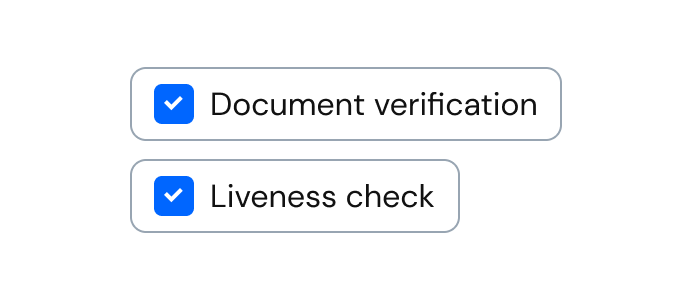AML & KYC Solutions for the Cannabis Business Industry
Unlock compliance confidence for the Cannabis business with KYCAID's AML and KYC Solutions! Stay ahead of regulatory requirements, mitigate risks, and ensure transparency with our tailored verification services.


Compliance Solutions For Cannabis Merchants
Cannabis businesses benefit from KYC and AML/BSA services to prevent financial crimes, ensuring regulatory compliance. Studies report a 70% decrease in illicit activities with robust compliance measures.
Essential Components of KYC and AML Procedures
Experience the power of KYCAID's KYC and AML compliance solutions tailored for the cannabis industry. Try out our solutions now and discover how we can elevate your business's security and compliance standards.
What do we offer
FAQ
-
How much time does the identity verification take?
The identity verification process takes approximately 20 seconds depending on the verification flow setting. Our AI-powered solutions ensure real-time online document checks, biometric verification, and global database screening, streamlining the customer experience and saving business time and money.
-
How does KYCAID ensure accurate age verification for cannabis-related operations?
KYCAID ensures accurate age verification through advanced document and biometric verification methods, including facial liveness verification and video KYC. These robust authentication measures provide a reliable means to confirm the age of individuals, safeguarding compliance with age verification requirements.
-
Can KYC and AML solutions be customized to meet the unique needs of cannabis businesses?
Yes, our KYC and AML solutions are designed to be fully customizable to meet the unique needs of cannabis businesses. Whether it's integrating specific identity verification methods, adapting to regulatory standards in different jurisdictions, or addressing industry-specific compliance requirements, our solutions can be tailored to ensure comprehensive and tailored compliance measures for cannabis businesses.
-
What are the key compliance requirements for cannabis businesses regarding KYC and AML?
The key compliance requirements for cannabis businesses include conducting comprehensive KYC verification, AML screening against sanctions lists, addressing age verification for cannabis-related transactions, and verifying the authenticity of business entities and investors. These measures are crucial to ensure compliance with regulatory standards and prevent hefty fines for non-compliance within the cannabis industry.


















